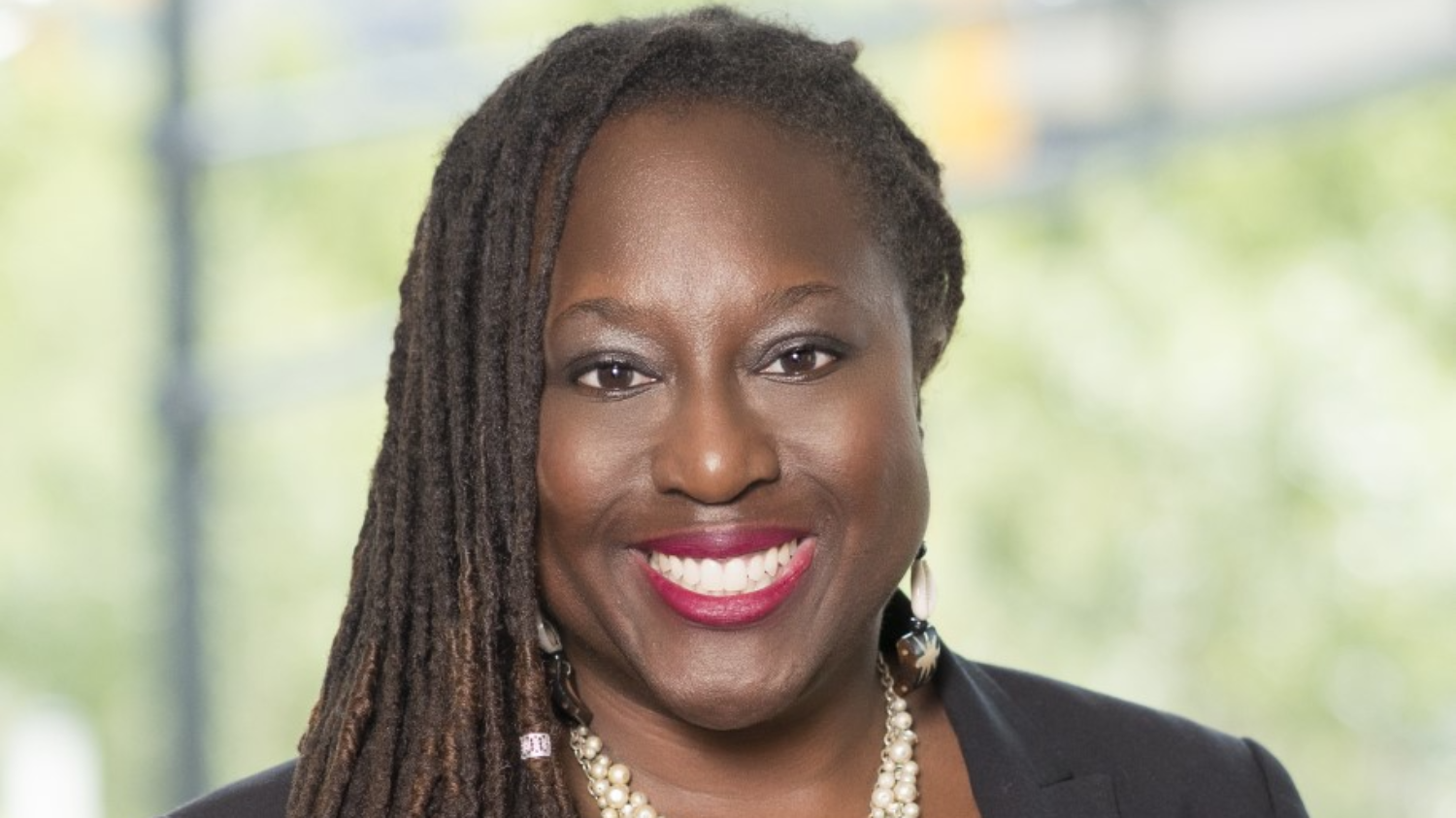Whether she’s teaching students or raising awareness of a criminal justice issue, Melba Pearson, a former prosecutor and deputy director of the American Civil Liberties Union (ACLU) of Florida, taps her deep knowledge of our legal system and frequently shares it in the classroom, media and at community events.
Pearson is the director of Prosecution Projects at the Jack D. Gordon Institute for Public Policy at the Steven J. Green School of International & Public Affairs and teaches in the Department of Criminology and Criminal Justice. She also co-manages the Prosecutorial Performance Indicators (PPI) project, a MacArthur Foundation-funded project at FIU to promote more transparency, effectiveness and fairness in the criminal justice system. The project offers prosecutors an evidence-based framework that uses data-driven analysis and performance measures to achieve these ends, as well as creating a public facing dashboard for each participating office.
This innovative partnership is primarily funded by the John D. and Catherine T. MacArthur Foundation’s Safety and Justice Challenge. FIU belongs to a network of nationally recognized researchers and works with prosecutors from over 30 jurisdictions who are committed to measuring and analyzing prosecutorial practices. Since 2016, through competitive grants, $12 million was awarded to fund the work from the Department of Justice and private foundations.
“The PPI project offers a holistic way to define success, data collection to measure progress, encourages collaboration with community members and provides tools to tackle racial inequities. Our goal is to help create a more equitable and effective criminal justice system. Our project is highly robust when it comes to supporting prosecutorial work and how to do it well,” said Pearson.
A native of New Rochelle, New York, she attended NYU, earned her JD at Hofstra University and moved to Miami to work in the Miami-Dade State Attorney’s Office (SAO). She worked there for 16 years, expanding the SAO’s Community Prosecution Unit by using innovative, data-driven programs to prevent and reduce crime.
Pearson transitioned into higher education to leverage her experience as a prosecutor and nationally recognized expertise on criminal justice reform. In addition to her PPI work, she teaches a criminology and criminal justice course three times a year, Ethics in Criminal Justice. “My prosecutorial experience has given me the ability to view laws and their application from an ethical standpoint, and also from the policy level – specifically the way in which policy decisions are communicated depending on the policymaker’s political lens,” she said.
She also wanted to leverage her background to address the issue with analytical data and research. “I was familiar with the work of Don Stemen at Loyola University, Chicago and FIU’s Besiki Kutateladze, criminology professor at FIU and the project’s lead researcher. Kutateladze’s vision was to create the Prosecutorial Performance Indicators project,” said Pearson. Their research focuses on prosecutorial decision-making, exploring contextual factors affecting prosecutorial outcomes, and sentencing, examining the innovation and diffusion of sentencing and prosecutorial policies across the U.S.
“Pearson’s experience as a prosecutor with experience working with victims of crime, as well as having a heavy case load and her policy work at the ACLU of Florida, is essential since all our other team members are academics. And as an African American woman, she brings her perspective on justice, public safety and how to communicate and approach the communities with whom we work and are key to the next phase of our project,” said Kutateladze.
Her research for FIU’s PPI project examines policies a prosecutor’s office has in place and how they affect judicial outcomes. For example, based on data collected in one jurisdiction, she inquired why more individuals of color were not completing diversion programs. Such programs are usually intended for first-time offenders or those who didn’t commit a serious crime, allowing them to avoid a criminal record. For example, they may choose to do community service, be offered a restorative justice tactic such as writing a letter to apologize to a victim or attend an anger management session.
In addition to her other activities, Pearson is often the go-to legal expert for major media such as CourtTV and the Associated Press. She also blogs and posts from @ResLegalDiva.
Pearson mentioned one former student – today a Miami-Dade County public defender – who has inspired her to teach and provide opportunities through her professional networks for students to pursue after graduation. During the pandemic, FIU law school student Tierra Fulwood was a policy fellow during her second and third years, and Pearson was her supervisor at the PPI project. During their weekly meetings, Fulwood was learning the nature of PPIs and how the performance indicators trend, the goals of prosecutorial reform and how the system works and ways it could be better.
“By far, Pearson is the best manager I’ve ever worked for in my life because she saw me as a person instead of her direct report,” Fulwood said. “I was fortunate to receive her help to attain another fellowship. She supported me and uplifted me in more ways than one and I was honored to have someone like her in my corner.”
